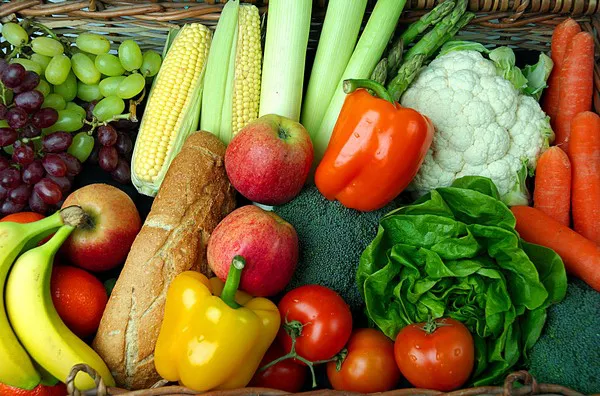Corn, a staple in the diets of people around the world, is not only delicious but also packs a nutritional punch. Often hailed as a versatile and economical source of sustenance, corn offers a multitude of essential vitamins and minerals. In this article, we will delve into the vitamins that are rich in corn, shedding light on the valuable contributions this grain can make to your diet.
The Golden Grain: A Brief Overview
Corn, also known as maize, has a rich history dating back thousands of years. Originally cultivated in the Americas, it has since become a global staple. Its versatility extends beyond the cob, as corn is used in various forms, including cornmeal, corn oil, and corn syrup. It’s not just a favorite for its taste and versatility; it’s also an excellent source of vitamins and minerals, making it an essential addition to any balanced diet.
Vitamins in Corn
1. Vitamin B1 (Thiamine)
Vitamin B1, or thiamine, is vital for the metabolism of carbohydrates. It plays a crucial role in converting the carbohydrates from corn into energy that our bodies can use. A serving of corn can provide a substantial amount of thiamine, contributing to the overall energy production within the body.
2. Vitamin B5 (Pantothenic Acid)
Corn also contains vitamin B5, or pantothenic acid, which is necessary for the synthesis of fatty acids and cholesterol. It plays a significant role in the metabolism of carbohydrates, proteins, and fats. Ensuring an adequate intake of vitamin B5 through foods like corn is essential for overall health.
3. Vitamin B6 (Pyridoxine)
Vitamin B6, or pyridoxine, is essential for brain development and function, as well as for maintaining a healthy nervous system. It also plays a role in the metabolism of amino acids, which are the building blocks of protein. Corn is a good source of vitamin B6, supporting these critical bodily functions.
4. Folate (Vitamin B9)
Folate, also known as vitamin B9, is crucial for the formation of DNA and RNA, making it essential for cell division and growth. It is particularly important during pregnancy to prevent neural tube defects in developing fetuses. Corn contains folate, making it a valuable addition to the diet, especially for pregnant women.
5. Vitamin A (Beta-Carotene)
Corn is rich in beta-carotene, a precursor to vitamin A. Vitamin A is vital for maintaining healthy skin, vision, and immune system function. Beta-carotene also acts as a potent antioxidant, helping to protect cells from damage caused by free radicals. Incorporating corn into your diet can contribute to your vitamin A intake.
6. Vitamin C (Ascorbic Acid)
Vitamin C, or ascorbic acid, is an antioxidant that supports the immune system, aids in the absorption of iron from plant-based foods, and promotes healthy skin. While corn may not be as high in vitamin C as citrus fruits, it still provides a modest amount of this essential vitamin.
7. Vitamin E (Tocopherol)
Vitamin E is an antioxidant that helps protect cells from oxidative damage. It also plays a role in immune function and skin health. Corn contains vitamin E, contributing to your overall antioxidant intake.
8. Vitamin K (Phylloquinone)
Vitamin K is essential for blood clotting and bone health. While corn is not exceptionally high in vitamin K, it still provides a small amount of this vital nutrient.
Conclusion
Corn is a versatile and nutritious grain that offers an array of vitamins beneficial to overall health. From the energy-boosting thiamine to the immune-boosting vitamin C, corn is a valuable addition to a balanced diet. Whether enjoyed as a side dish, incorporated into a salad, or used in various recipes, corn provides a wholesome source of essential vitamins.
It’s worth noting that the nutritional content of corn can vary depending on the variety and preparation method. Fresh, frozen, and canned corn all have slightly different nutrient profiles, with fresh corn typically containing the highest levels of vitamins and minerals. Nonetheless, corn in its various forms can be a valuable part of a well-rounded diet.
While corn alone cannot fulfill all your nutritional needs, incorporating it into a diverse and balanced diet can help ensure you receive a wide range of essential vitamins and minerals. So, the next time you savor a succulent ear of corn or relish a corn-based dish, rest assured that you’re not only delighting your taste buds but also nourishing your body with a plethora of vital vitamins.


